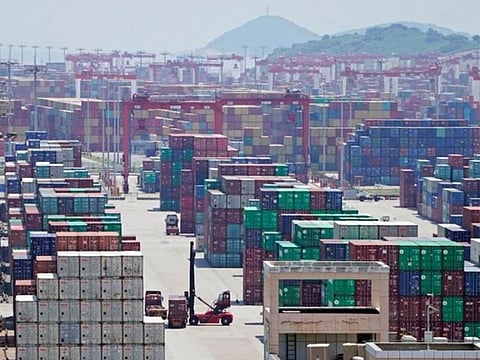UAE businesses are hurting badly from 25-30% hike in shipping costs since October
If unchecked, this will lead to higher costs for consumers in UAE, warns Danube chief

Dubai: UAE businesses reliant on imports or exports are at extreme risk after the 25-30 per cent increase in freight costs since October. If this continues, no sector will be spared from the fallout, according to the Chairman of building supplies group Danube.
“The current freight rates, if continue, will force traders to increase prices of commodities that will push up prices at the wholesale and retail level as well,” said Rizwan Sajan. This will end up “making things more expensive on the shelves.
“Similarly, this will reflect on the building materials prices and escalate the cost of building homes.”
Sharp upturn
Freight rates on a 40-feet container from India to Gulf ports, for instance, have shot up significantly in recent months. On another key route for Gulf businesses, the Shanghai Containerised Freight Index is up from 829.29 on April 17, 2020 to 1,857.33 on August 13 – that’s a 124 per cent upturn.
For local businesses that were hit by supply disruptions from China after the pandemic broke out, the sustained escalation now has caught them by surprise… and helpless.
No cheaper options anywhere
Air freight is also up by 30-40 per cent owing to reduced international flights due to the pandemic. “Freight charges usually decline when demand for goods are less,” said Sajan. “However, following the pandemic, freight charges have skyrocketed up to 124 per cent – at a time when businesses worldwide are fighting for survival and the overall global economy is suffering severely.”
Stocking up
It could be that businesses worldwide have started to stock up early ahead of the year-end and into the initial weeks of 2021. This is translating into limited container capacity available – on just about any route.
UAE businesses are caught in the bind as they wait for shipments to arrive… and pay steep rates to get them to the ports.
Sajan has one solution - “I ask shipping agencies to reduce the freight rates in line with market demand and supply. The current freight rates are hurting importers and adding to our costs – making products more expensive.”
But it might be difficult to enforce it. Local shippers and freighters have to flow with the current demand and supply cycles, and the container rates that come along with it. Plus, shippers will also be hoping the current rates will compensate for the under-performing months they had to endure in the first-half of this year, when supply chains were reeling from the impact of the pandemic.
Sign up for the Daily Briefing
Get the latest news and updates straight to your inbox







